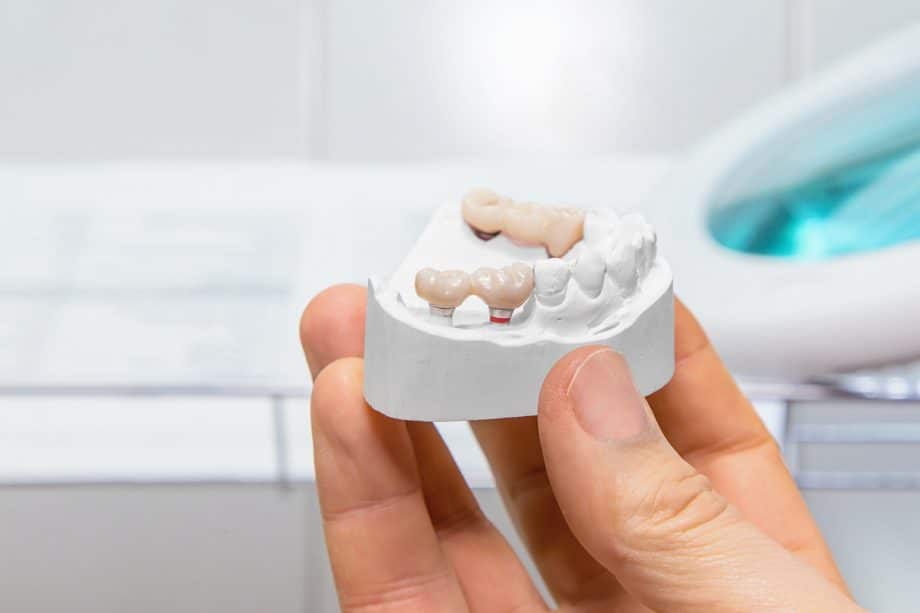Dental bridges are an excellent option for many patients who need to replace missing teeth. They should fit securely in your mouth without causing any pain, irritation, swelling, or discomfort. If you feel like your dental bridge doesn’t fit correctly, you should contact your dentist. Here’s what you need to know about how dental bridges should fit.
The Proper Fit of Dental Bridges
A proper fit is imperative for a dental bridge to look and function correctly. A dental bridge should feel stable and comfortable. It shouldn’t shift when you eat, chew, or speak. It’s common for it to feel tight when it’s first placed, but this should ease after a couple of weeks. If discomfort persists, contact your dentist.
The artificial teeth, or pontics, of the bridge, should fit snugly but comfortably against your gums without any gaps. If you notice gaps or find food accumulating near the bridge base, you should bring this to the attention of your dentist.
Keep in mind that a poorly fitting dental bridge can harm your oral health by damaging adjacent teeth or increasing the risk of gum disease and gum recession. It also won’t function like it should and may not look right.
Signs Your Dental Bridge Needs Adjustment
If you experience any of these symptoms, schedule a visit with your dentist to have your bridge and its placement checked:
- Sore Gums: Tender, swollen, or sore gums beneath your bridge may indicate a loose fit.
- Pain When Eating: Notify your dentist if chewing with your bridge causes pain. The bridge might need reshaping or realigning.
- Movement of the Bridge: If your bridge moves when you touch it with your finger or tongue or shifts while eating, it needs adjustment. Your bridge should always stay firmly in place.
- Pressure on Adjacent Teeth: Soreness or a persistent feeling of tightness in the teeth next to your bridge suggests it’s time for an exam with your dentist.
Frequently Asked Questions About Dental Bridges
How do you take care of a dental bridge?
Taking care of a dental bridge is quite similar to taking care of your natural teeth. Committing to excellent dental hygiene is the key. You should schedule routine checkups and cleanings with the dentist. Be sure also to brush your teeth twice daily and floss with the right flosser.
How long will my bridge last?
When well cared for, your bridge could last as many as 10 or 15 years. The type of bridge, its materials, the dentist who installs it, and how you care for it will determine its lifespan. You should discuss how long your specific bridge might last with your dental care provider when deciding on the best treatment option for your missing teeth.
Learn More About Dental Bridges in Stuart, FL
Never be afraid to contact your dentist if you feel your bridge isn’t fitting like it should or if something is wrong with it. If you are interested in learning more about bridges, the professionals at Stuart Prosthetic Dentistry can help. Contact us today at 772.286.1606 or request an appointment online.

